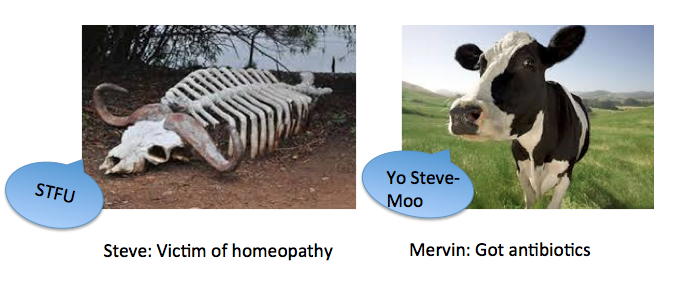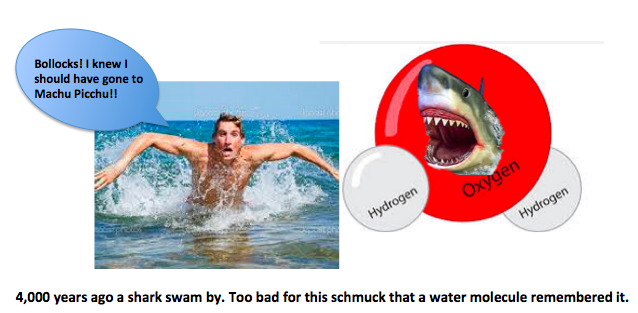
Spoiler: Stupid Alert...
Every year in the EU November 18th marks European Antibiotic Awareness Day, a public health initiative which was instituted by The European Centre for Disease Prevention and Control in 2008. The purpose of the initiative is to help combat antibiotic resistance – a noble goal.
That is until the loonies got involved:
"HOMEOPATHY HELPS FIGHT ANTIMICROBIAL RESISTANCE EUROPEAN ANTIBIOTIC AWARENESS DAY" 18 November 2018"
Oh, no. They can't mean that sick animals should be treated using homeopathy instead of antibiotics, right?
"Last but not least, homeopathy has been successful in treating infectious diseases in farm animals. This is the case of mastitis in dairy cows and diarrhoea in piglets."
Yes, they can. And this could put a real crimp in Europe's food supply, especially in Britain.
It just so happens that the UK is one of the few countries in Europe with an average meat consumption of 90+ kilograms per person per year. Brits eat a lot of meat. Vegans don't like this much. However, the vegans in Britain are sure gonna be happy because the Brits won't be eating a whole lot of meat if groups like Homeopathy Europe get their way. Britain is particularly susceptible to this idiocy because the royal family is a big proponent of alternative medicine, especially homeopathy. So much so that a pharmacy in London is selling homeopathic solutions of the Berlin Wall for various personality disorders – something I'll be writing about soon.
Maybe the vegans are going to be happy, but I don't think the same can be said for the cows. Let's look at a real-life scenario:
Both Steve and Mervin were unfortunate victims of bacterial infections. Mervin was treated with antibiotics. However, Steve, never blessed with much luck even on a good day, was given a homeopathic remedy – water that used to have one molecule of penicillin dissolved in it. The results speak for themselves;

Since homeopathy is based on the premise that even when something is gone, a memory of it remains, it stands to reason that this fine technology could be implemented in other ways. For example, it's really quite a waste providing all the grass required to feed all those cows. Can't we do better? The answer is staring us right in the face—homeopathic grass.
But this didn't work out so well either:

Things could still be OK. Maybe if we are lucky, someone will come up with a homeopathic cow.
Even if the homeopathic cow doesn't work out, worry not. People won't starve. Don't forget that the Brits absolutely love their fish and chips, which should be a fine substitute for the meat that the Brits will no longer be able to consume.

Unfortunately, the Brits are surrounded by the sea. Which, according to homeopathic principles, could become inhospitable.




